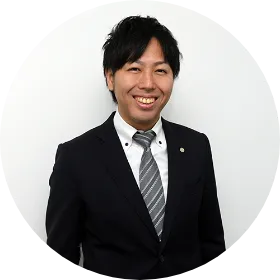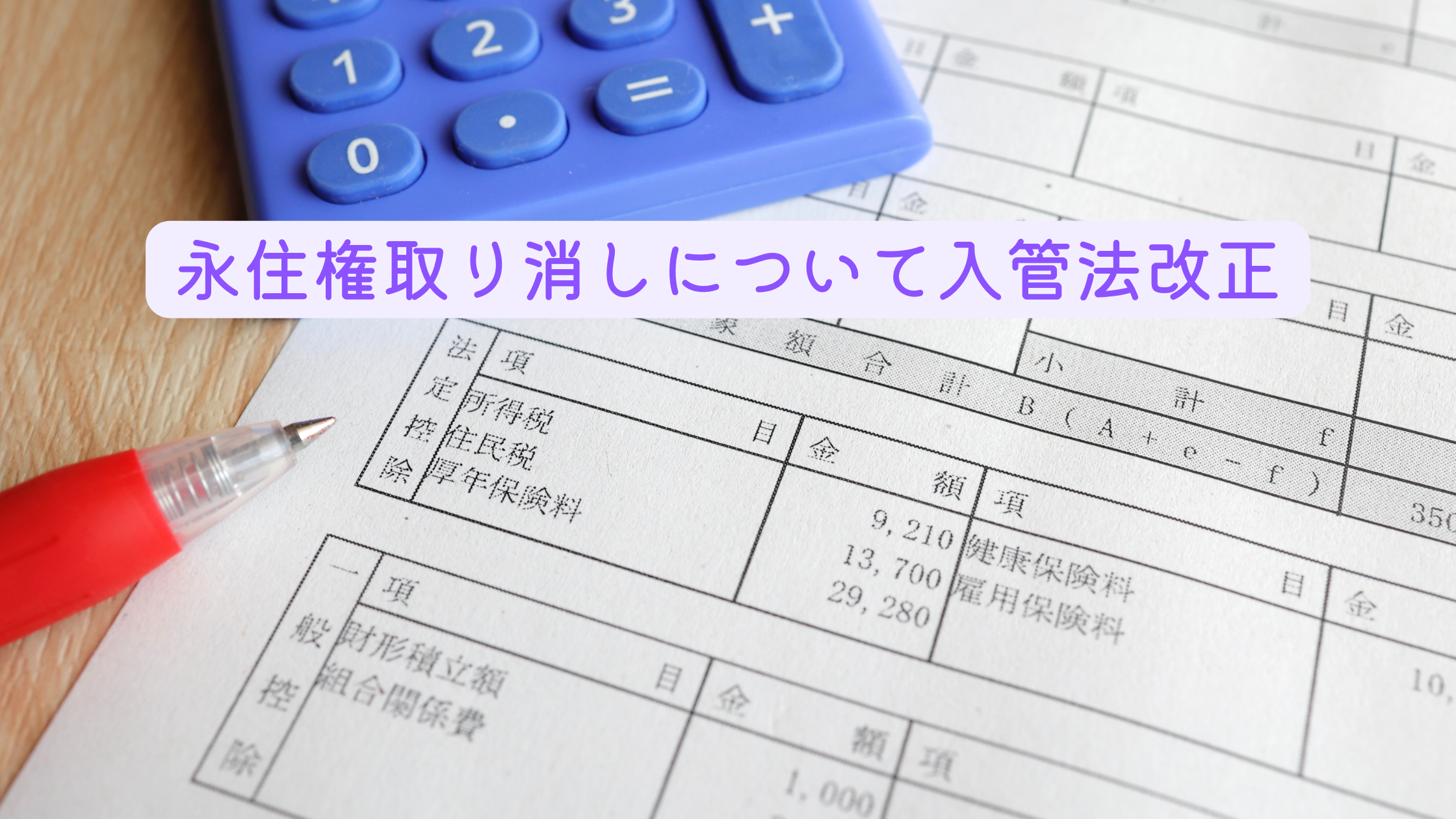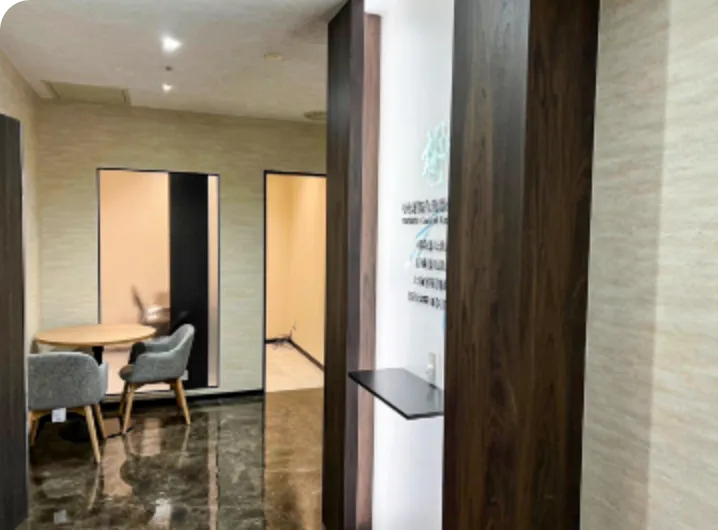Permanent Resident Visa
Pension Payment Postponement and Contribution Exemption
- 2024.05.15

Participation in the public pension system is MANDATORY for both Japanese and foreigners living in Japan. However, if it is financially difficult to pay the public pension contributions due to a decrease in income, unemployment, or other reasons, there is a system under which pension payments can be exempted or postponed. In this article, we will explain the pension deferment and exemption system.
Payment Postponement
Payment Postponement is for temporarily postponing pension payments. For example, you can apply for a postponement if you are temporarily unable to pay your pension for health or financial reasons.
Health Reasons: Can be applied when a person is temporarily unable to work due to a serious illness or injury.
Economic Reasons: This may apply when a person has difficulty paying his/her pension due to living expenses or other financial difficulties.
However, Payment Postponement is only a temporary measure, and you will be required to pay the postponed amount later. If you choose to use Payment Postponement, it is important to have a solid repayment plan for the future.
*Through June 2016, the program is for those under 30 years of age, and after July 2016, it is for those under 50 years of age.
Contribution Exemption
Contribution Exemption is a program that exempts you from paying part or all of your pension. This is applied by meeting certain conditions. The applicant submits an application and, if approved, is exempted from contributing.
Conditions for Contribution Exemption include, for example, the following:
For the elderly: A person may be exempted from all or part of the pension due to a decrease in income or difficulties in living due to old age.
Disability: A person may be exempt from some or all of the pension due to severe physical or mental disability.
Whether one can be exempted depends on the pensioner’s situation, so specific conditions and details are case-by-case. In most cases, documentation such as certificates or a record of medical diagnostics must be submitted.
There are four types of exemptions: full, three-fourths, half, and one-fourth.
Pension deferments and exemptions are designed to provide more flexible access to the pension system and are applied according to individual circumstances. It is important to consult with public pension agencies and government offices for applications and procedures.
National Pension Contribution Special Payment System for Students
The National Pension Plan covers all residents of Japan who are 20 years of age or older, but there is a ” Special Payment System” for students. This is a system that allows students to defer payment of insurance premiums while in school if they apply. Applications can be made at the pension office, the national pension counter of the city (ward) office or town/village office, or in some cases, at the school to which the student belongs.
Certain criteria must be met to be eligible for the program:
Impact on Permanent Resident Visa Application
As mentioned at the beginning of this article, participation in the public pension system is “obligatory” for anyone living in Japan, including foreigners.
“Not have been sentenced to a fine or imprisonment. That he/she has properly fulfilled his/her public obligations (tax payment, payment of premiums for public pension and public medical insurance, and notification and other obligations stipulated in the Immigration Control and Refugee Recognition Act).”
According to the guidelines for permanent residence applications, the official obligations are as described above.
Not only are they required to pay the tax, but they are also required to pay it at the proper time (on the due date).
In addition, as materials to be submitted, the applicant is required to submit “materials proving the most recent (past two years) payment of public pension premiums,” which basically means that the most recent two years will be checked.
Therefore, foreign nationals who plan to apply for a permanent residence visa must first check the status of their participation in the National Pension Plan, Employees’ Pension Plan, etc., and payment of pension premiums.
For more information, please click here.
Summary
In this issue, we explained the pension deferment and exemption system.
For foreign nationals living in Japan, compliance with legal obligations is important for all statuses of residence, but if payment is unavoidably difficult, it is possible to take advantage of the pension deferment, exemption, and student payment exception systems.
If you are concerned about your pension, please feel free to contact us for a free consultation.
We are Yanagi Group, which have offices in Osaka (Abeno and Tennoji), and our affiliated offices in Tokyo (Shibuya and Ebisu) are also available for an on-site consultation. We have handled many applications for permanent residence permits, naturalization permits, work visas, college student visas, management visas, etc., as well as visa renewal procedures related to the status of residence with the Immigration Bureau (Immigration Bureau) as a one-stop service. Our experienced administrative scriveners are also available to help you with any problems you may have.
We also have staff members who can speak each of the native languages and can assist you in obtaining a visa.
※If you wish to be consulted in Nepali or Bengali, please inform us in advance via our website or social media, and the translator will contact you ahead of time.
Please feel free to contact us if you have any questions about your status of residence or visa, even if they are trivial.

Toll-free number: 0120-138-552
For English speakers: 080-9346-2991
For Chinese speakers: 090-8456-6196
For Korean speakers: 090-8448-2133
For Vietnamese speakers: 080-5510-2593
Editor of this article

- Ryota Yanagimoto
- Administrative Scrivener/Judicial Scrivener
At the age of 24, he passed the national examinations for judicial scrivener, administrative scrivener, and wage service manager at the same time.
While working as a full-time lecturer at a major prep school, he independently opened a legal office related to judicial scriveners and administrative scriveners,
and he has experience as a judicial scrivener and an administrative scrivener for more than 15 years so far.
He has been actively contributing to various industries such as publicly listed companies, real estate companies, financial institutions, elderly care services, and professional organizations by conducting seminars, lectures, and talks.
And now he has a record of over 60 presentations so far.
Furthermore, as the president of a Japanese language school announced by the Ministry of Justice and Acts, and an advisor to a real estate company (capable of handling foreign clients),
he has been involved in various aspects of industries related to foreigners.
It is recommended to consult with experts when it comes to visas, naturalization, and residency matters.

Our office has specialized experts in visa and naturalization applications who are available to assist with free consultations (limited to the first session) and inquiries related to various visa applications and naturalization applications.
Additionally, we have foreign staff proficient in English, Chinese, and Korean languages with specialized knowledge, and they are present to provide support. They can accommodate consultations and inquiries in each language. Feel free to use our free consultation and inquiry services from here.






















 0120-138-552
0120-138-552 Free
Consultation
Free
Consultation Contact Us
Contact Us